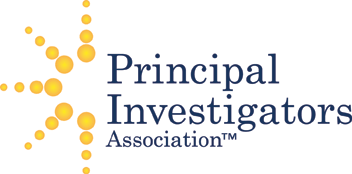Complying with NIH & NSF’s RCR Training Requirements: What’s the PIs Role?
Available in CD, MP3 and PDF Transcript
In an effort to demonstrate their continued commitment to ethics instruction, the NSF and NIH recently mandated that institutions develop a plan for Responsible Conduct of Research (RCR) instruction. The NIH specifically requires that the plan address five instructional components including faculty participation.
PI Role in RCR
To comply with faculty participation, you are expected to contribute both to formal and informal instruction in RCR. Your grant application must include a plan for how you will carry out this instruction. Although it will not affect your overall impact score, if you fail to include it, your application will be considered incomplete and will not be reviewed until you provide an acceptable plan of instruction. Don’t let these expectations stop you in your tracks. RCR expert, Dr. Wendy Williams will guide you to meet NIH and NSF requirements by providing you with RCR instructional methodologies, strategies and approaches that you can employ immediately!
Your Resource
This live 90-minute webinar will answer your RCR questions and show you how to:
• Determine your role in institutional RCR training
• Tailor your RCR education plan
• Address RCR instruction in grant applications
• Communicate RCR requirements to trainees
• Track and monitor completion of RCR training
Extracting science from your lab and getting discoveries is hard enough. Attend this live webinar and let an expert guide you to your immediate action plan on how to meet the NIH and NSF RCR requirements.
Price:
-CD-Rom with PDF Handouts: $99!
- MP3 file with PDF Handouts: $99!
- PDF Transcript with Handouts: $99!
Take-Away Benefits:• Expectations for faculty involvement in RCR training |
Featured Presenter:
Wendy Reed Williams, Ph.D. joined the research administration staff in of The Children’s Hospital of Philadelphia Research Institute in 2002 after completing postdoctoral research fellowships at the United States Department of Agriculture and in the Division of Oncology at The Children’s Hospital of Philadelphia (CHOP). Her work at the USDA focused on the control of gene expression in higher animals and her work at the Children’s Hospital centered on understanding the involvement of genes in the development of leukemia. Dr. Williams received her B.S. degree in Zoology from Howard University in 1993 and her Ph.D. in Biology from the Johns Hopkins University in 1999. At Hopkins, her dissertation research focused on protein-protein interactions and protein-DNA interactions important to the regulation of gene activity by the AraC protein in Escherichia coli. Dr. Williams has brought her formal training in science, her love of teaching and interest in bioethics and education to her position as Director of the Offices of Responsible Research Training and Postdoctoral Affairs at CHOP. Her position allows her to train the scientists with whom she once shared a laboratory bench in a broad range of topics including one of her favorites, responsible research conduct and integrity in science.
This Webinar presentation is brought to you as a training tool by the Principal Investigators Association, which is an independent organization. The presentation, tools presented and their contents are not connected with the National Institutes of Health (NIH) or the National Science Foundation (NSF), nor are they endorsed by these agencies. All views expressed are those personally held by the presenter and are not official government policies or opinions.




